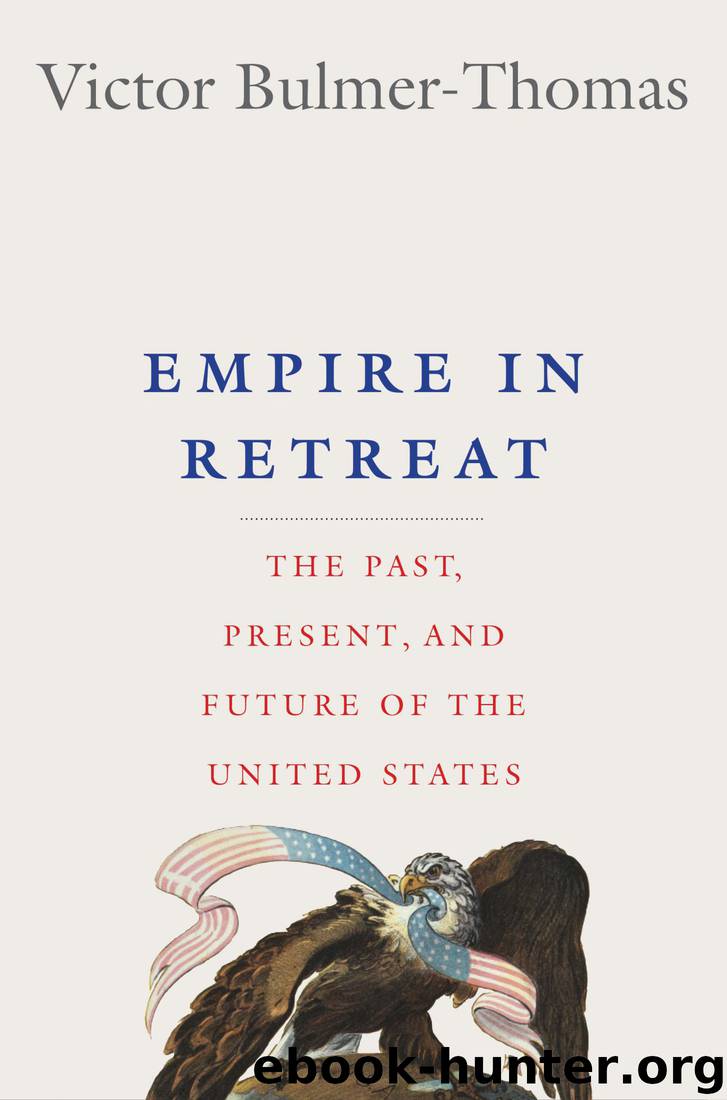Empire in Retreat: The Past, Present, and Future of the United States by Victor Bulmer-Thomas

Author:Victor Bulmer-Thomas [Bulmer-Thomas, Victor]
Language: eng
Format: epub
Tags: Non-Fiction, United States, History, Colonialism & Imperialism
ISBN: 0300210000
Amazon: B07B51FHGG
Publisher: Yale University Press
Published: 2018-03-27T04:00:00+00:00
BOX 8.3
GUANTÁNAMO BAY
The US government had set its sights on Guantánamo Bay in Cuba as a suitable base for its navy long before the Spanish-American War in 1898. It was not until Spain’s surrender, however, that plans could be put into action.
Under two agreements in 1903, the second of which was replaced by a new one in 1934, the United States leased indefinitely an area on the south coast of Cuba “for the purposes of coaling and naval stations” with the proviso that “no corporation shall be permitted to establish or maintain a commercial, industrial or other enterprise.”
The rent was set at $2,000 per year, but Cuba was required to purchase all private lands and real property in the area. The United States agreed to advance Cuba the money to do so on condition that the funds be deducted from future rents. Thus, it is very unlikely that Cuba received any rental income for many years.
The rent was subsequently doubled, and at the time of the Cuban Revolution the United States was paying $4,085 per year. The first check in 1959 was cashed (due to “confusion,” according to Fidel Castro), but none were afterward. Thus, the US Navy has had free use of Guantánamo Bay since 1960, although the Department of Defense in its Base Structure Report for 2015 estimated the value of the facilities at $3.65 billion.
The base has had many uses since the Cuban Revolution, including as a temporary home for Haitian refugees, as a prison for many captured in the “global war on terror,” and as a place where suspects can be tortured without breaching US law (Guantánamo Bay is sovereign Cuban territory and therefore not subject to US Supreme Court rulings).
Cuba regularly calls for the restoration of the base but can do nothing as that requires the agreement of both sides. If the case were to go to an international tribunal, however, Cuba would certainly win, as the base is no longer used exclusively for its original purposes while commercial activities (McDonald’s, Burger King, etc.) take place there. In any case, normalization of the bilateral relationship—a publicly stated goal of both sides following the restoration of diplomatic relations in 2015—will require the return of the base to Cuba at some point.
Download
This site does not store any files on its server. We only index and link to content provided by other sites. Please contact the content providers to delete copyright contents if any and email us, we'll remove relevant links or contents immediately.
The Secret History by Donna Tartt(19053)
The Social Justice Warrior Handbook by Lisa De Pasquale(12187)
Thirteen Reasons Why by Jay Asher(8894)
This Is How You Lose Her by Junot Diaz(6877)
Weapons of Math Destruction by Cathy O'Neil(6267)
Zero to One by Peter Thiel(5787)
Beartown by Fredrik Backman(5737)
The Myth of the Strong Leader by Archie Brown(5500)
The Fire Next Time by James Baldwin(5431)
How Democracies Die by Steven Levitsky & Daniel Ziblatt(5216)
Promise Me, Dad by Joe Biden(5142)
Stone's Rules by Roger Stone(5081)
A Higher Loyalty: Truth, Lies, and Leadership by James Comey(4954)
100 Deadly Skills by Clint Emerson(4921)
Rise and Kill First by Ronen Bergman(4780)
Secrecy World by Jake Bernstein(4741)
The David Icke Guide to the Global Conspiracy (and how to end it) by David Icke(4709)
The Farm by Tom Rob Smith(4502)
The Doomsday Machine by Daniel Ellsberg(4484)
